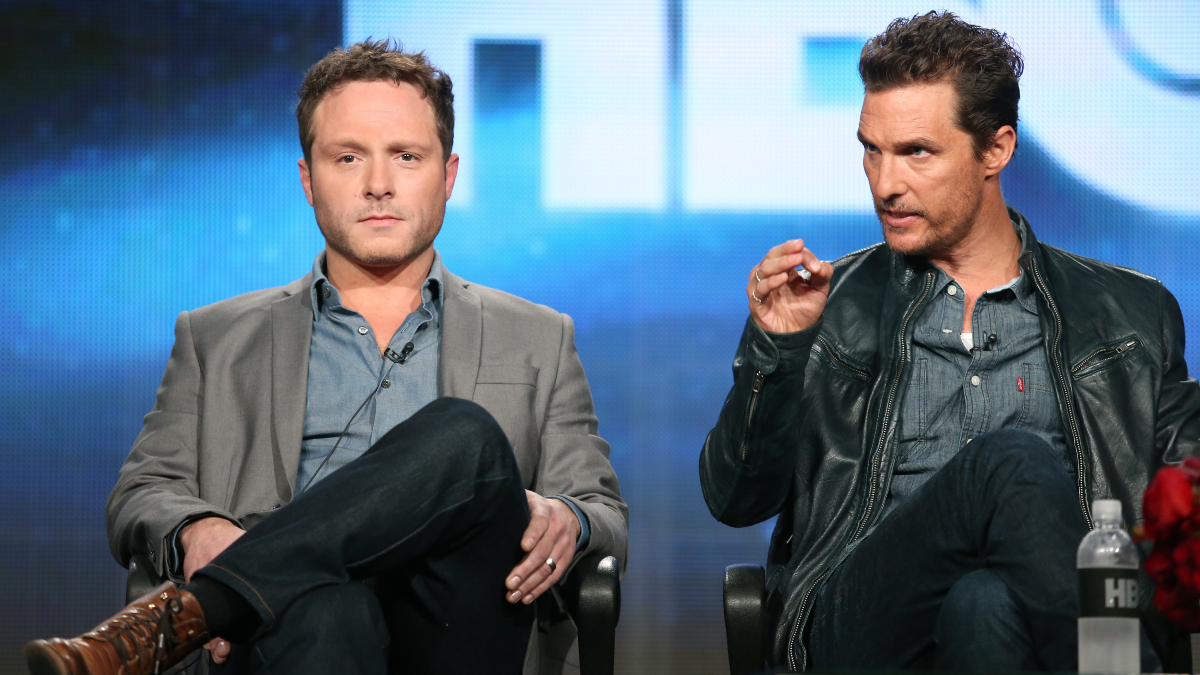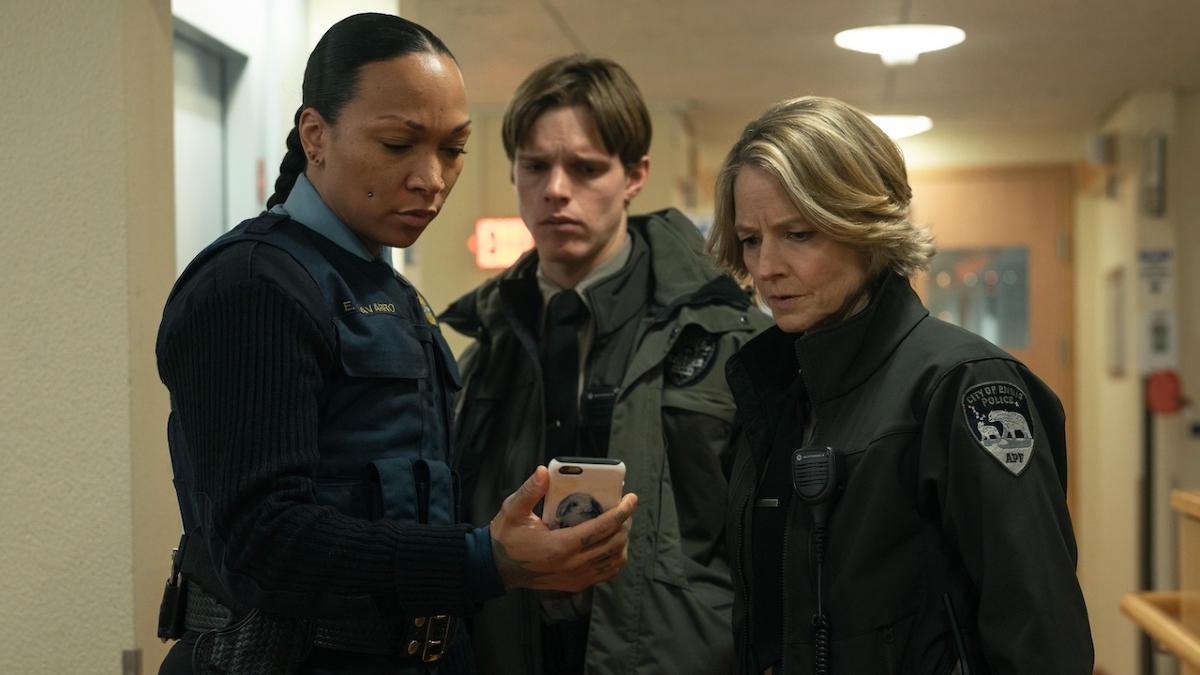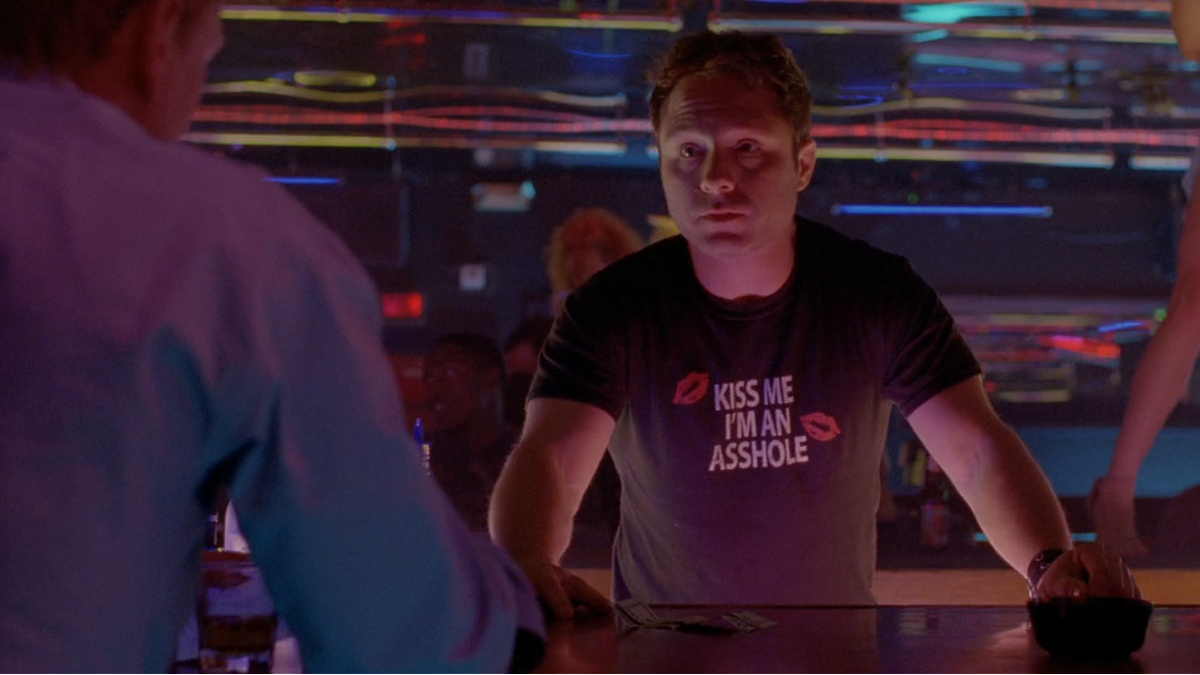Nic Pizzolatto Has Always Sucked

In the five years since True Detective was last relevant, you may have forgotten that Nic Pizzolatto is—how to put this delicately?—an asshole. That’s okay. While Night Country was busy becoming the highest-rated season of the series, Pizzolatto was online, reminding us exactly who he is.
More than three million people watched the finale of True Detective: Night Country on Sunday night, bringing the season’s total to 12.7 million viewers, the highest in the series’ history. That’s a huge win for everyone involved in Night Country, but especially for showrunner Issa López, who created, co-wrote, and directed all six episodes of the latest installment. It’s also great news for executive producers of the series, including franchise creator Nic Pizzolatto, who celebrated by reposting intensely negative reactions from his fanbase—which is largely comprised of quasi-intellectual misogynists who’ve made the Nietzsche-quoting protagonist played by Matthew McConaughey in season 1 their entire personality.
Screenshots from the Instagram stories—which Pizzolatto quickly deleted because he is an actual child who thinks no one will notice he just smeared doo-doo on the walls—have been blessedly immortalized on X. “I can only imagine how it feels to have his all time classic dialogue butchered and misappropriated,” reads one post from a devastated Pizzolatto sympathizer. “So insulting calling it True Detective, and beyond disrespectful invoking ‘time is a flat circle.'”
“@hbo should have stuck with @nicpizzolatto,” is the headline on the second post, which is a little less “thoughts and prayers” and a little more “thesaurus.com.” It’s a whole lot of words to say “oooh, pick me.” Anyway, Pizzolatto did, so I guess it worked.
Night Country star Kali Reis chimed in, retweeting a user who accurately described Pizzolatto as acting “like an absolutely enormous baby.” Reis, who praised Pizzolatto and his first three seasons of True Detective in an interview with The A.V. Club, added, “That’s a damn shame … but hey I guess ‘if you don’t have anything good to share, shit on others’ is the new wave.”
This isn’t the first time that Pizzolatto acted petty about Night Country. Midway through the season, he took a break from cashing his free checks to respond to commenters on Instagram, where he called the connections to season 1 “so stupid.” His fans are right. The man is a master of the written language.
Issa López was unbothered by Pizzolatto’s remarks, telling Vulture, “I believe that every storyteller has a very specific, peculiar, and unique relation to the stories they create, and whatever his reactions are, he’s entitled to them. That’s his prerogative.” Despite his petty comments, López still has (or had) nothing but respect for Pizzolatto’s work. “I wrote this with profound love for the work he made and love for the people that loved it,” López said. “And it is a reinvention, and it is different, and it’s done with the idea of sitting down around the fire, and [let’s] have some fun and have some feelings and have some thoughts. And anybody that wants to join is welcome.”
Pizzolatto clearly doesn’t feel the same way. And that’s fine; like López said, he’s entitled to his opinions. But the way he’s chosen to share those opinions is—to borrow a phrase from the great bard of HBO himself—so stupid. Pizzolatto wants to have it both ways: talking shit without actually talking shit, and cashing checks from a successful run of episodes he had nothing to do with while passive-aggressively reposting bad-faith takes from his toxic fanbase.

And they are toxic: The r/TrueDetective subreddit is filled with Pizzolatto devotees posting nothing but love for their chosen king while slamming Night Country, and dissing López and HBO for having the nerve to make another season of True Detective without Pizzolatto, as if the first season is sacred text.
Many of the sentiments are similar to the ones Pizzolatto re-posted on Instagram. Those who believe that “@hbo should have stuck with @nicpizzolatto” have clearly forgotten that HBO did stick with Pizzolatto for two more seasons. Season 2 was a disappointment for both fans and critics, and although season 3 was an impressive course-correction with a solid story and a great cast, it failed to recapture the viewership and ratings of season 1.
As has been widely reported, HBO wanted to run with the anthology concept, bringing in new writers and directors for each season of True Detective. But Pizzolatto, who famously butted heads with season 1 director Cary Fukunaga, didn’t want to relinquish control of the franchise. Fukunaga remained cordial when asked about reports of tension between the two, while Pizzolatto almost certainly based a season 2 character—an asshole director with a ponytail and a drinking problem—on Fukunaga.
And as for the “all time classic dialogue” that was “butchered” and “misappropriated” by López, Pizzolatto’s admirers seem to have forgotten that much of Rust Cohle’s dialogue in season 1 was borrowed from horror author Thomas Ligotti. Back in 2014, there was some debate over the extent to which Pizzolatto should have credited Ligotti, whose non-fiction book The Conspiracy Against the Human Race is heavily paraphrased by McConaughey’s character. It’s strange that Pizzolatto is so upset about the writing of Night Country. At least López openly credits his influence. I’m also not sure that López was “disrespectful” when she included the most famous line from season 1. Almost any pseudo-intellectual who did time in their school’s “gifted” program can tell you that “Time is a flat circle” is paraphrasing Friedrich Nietzsche’s Thus Spake Zarathustra.
Maybe the classic dialogue Pizzolatto’s fans hold so dear isn’t the philosophical ramblings of a fictional nihilist, but the astute observations of his partner, the misogynist hypocrite Marty Hart, played by Woody Harrelson. In the first episode of season 1, “The Long Bright Dark,” Marty waxes poetically about meeting his wife:
Met Margaret my senior year. She was a freshman. Eighteen and straight off the tree. Small, with freckled skin. A big pile of thick, black hair. Green eyes. Irish. This ass. Tits like softballs.
It seems more likely that what actually bothers Pizzolatto—and by extension, his fans—about Night Country is that it doesn’t include misogynist dialogue and gratuitous shots of tits and ass. Depiction isn’t endorsement, of course, but when the New Yorker‘s Emily Nussbaum criticized the one-dimensional female characters in True Detective season 1, Pizzolatto couldn’t help but tell on himself. “Such criticism incenses Pizzolatto,” noted Lacey Rose in a 2015 profile for The Hollywood Reporter. “Unable to hide his frustration,” Pizzolatto used screenwriter Callie Khouri as a shield: “When Callie, who wrote Thelma & Louise, thinks that [Nussbaum’s article is] stupid criticism, I’m inclined to take her opinion over someone with a Wi-Fi connection.” Claiming to be friends with a woman who disagrees with another woman’s criticism isn’t a flex. It’s basically just paraphrasing, “Of course I’m a feminist, my mom is a woman!” And since when is having high-speed internet access a moral failing?
Night Country effectively inverts the narrative of season 1 to tell a story about missing and murdered Indigenous women with two female leads. The point isn’t, as one Pizzolatto fan claimed, “Men = Problem.” (Jodie Foster and the evil mining company lady get to be problems, too.) The story López is telling is about stories, how we keep telling the same ones over and over again, and who gets to do the telling. I guess when Martin Scorsese makes the same point, it’s a masterpiece, but when a Mexican woman does it, it’s blasphemy.

Whether you loved Night Country or hated it, or maybe you just really liked it despite its perceived flaws (a very normal response), I think we can all agree that Nic Pizzolatto’s reaction to it is, at best, extremely petulant and kind of annoying. He’s getting plenty of backlash on social media for being so obviously resentful of López’s success, but the thing I find most grating is the senseless pettiness. What is the point? Who or what is being served by reposting sophomoric “takedowns” of Night Country? These aren’t genuine criticisms from thoughtful, reasoned viewers. These are overwritten, bad-faith shit posts from Pizzolatto die-hards desperate to be noticed by him, to have their parasocial relationship validated by their pop-culture S.O. It isn’t surprising that Pizzolatto’s own fanbase agrees with him, and it certainly isn’t meaningful. If anything, it just reminded me that he’s always been an asshole.
Nic Pizzolatto’s name is attached to a wildly successful, provocative season of television that has generated really interesting discussions about art, folklore, storytelling, the marginalization of Indigenous people, and the nature of horror. He gets checks from HBO without having to do any of the work required to make that season of television. What’s the problem? Does he need more credit for other people’s ideas? To quote a fictional man I think Pizzolatto would really love, that’s what the money is for.
(featured image: Frederick M. Brown, Getty Images)
Have a tip we should know? [email protected]
